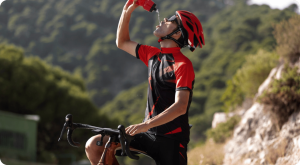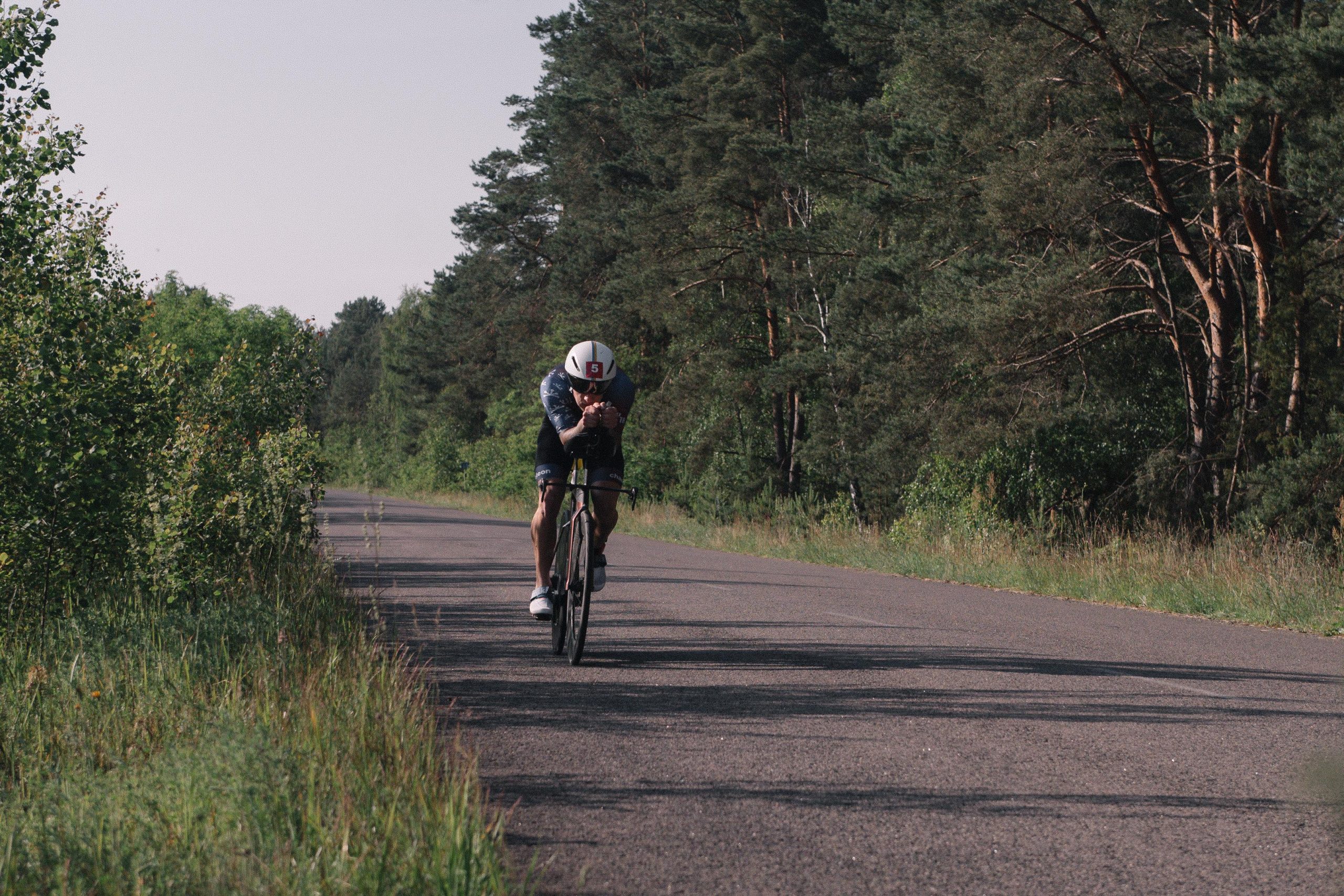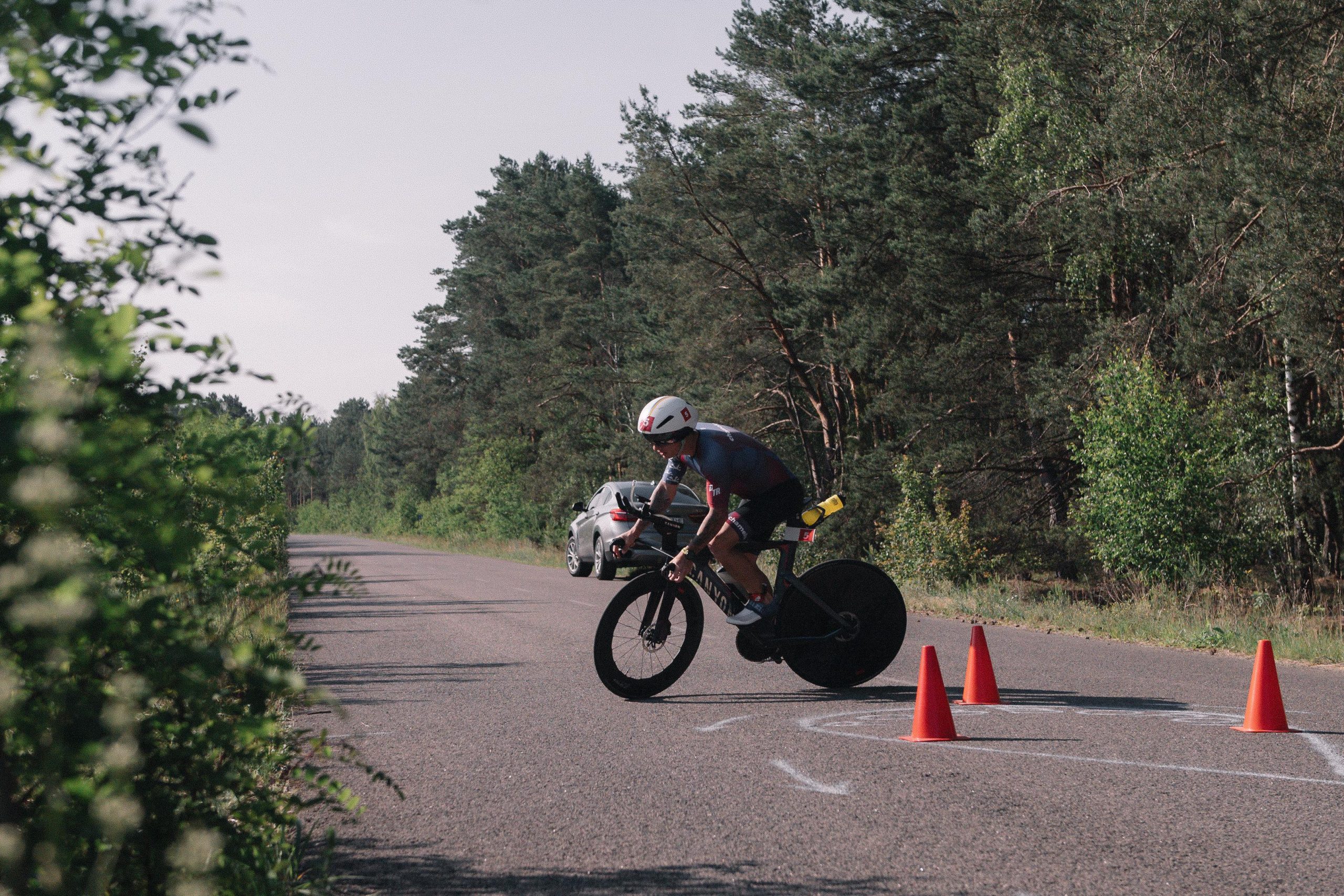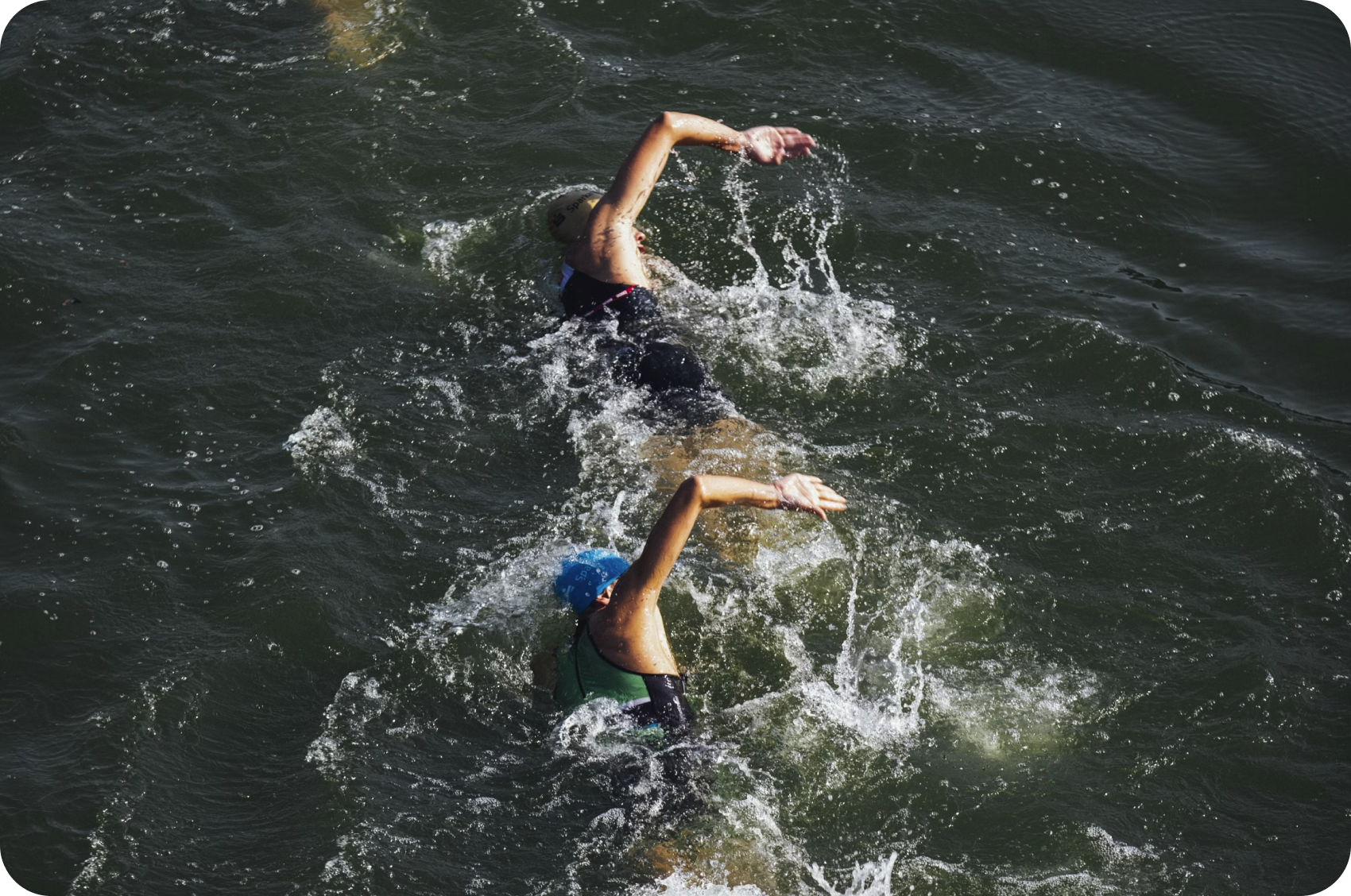In the world of endurance sports, maintaining optimal hydration levels can be the key to crossing the finish line successfuly.
The main purpose of this article is to be your comprehensive guide to staying hydrated during intense exercise and maintaining optimal hydration levels for triathlon success.
We recognize that every triathlete has a common need.
The need to understand, implement, and master hydration strategies.
From the beginner who is nervous about their first sprint to the elite athlete who is striving to finish on the podium
We’ll cover the scientific basis of dehydration and sweat rate, distinguish between the risks of overhydration and underhydration, and discuss the critical role of electrolytes.
This article will equip you with the information to make hydration training work for you.
Let’s dive into the science of dehydration and the effects it can have on your athletic performance.
The Science of Dehydration: The Impact of Hydration Status on Your Performance
Dehydration is not a triathlete’s ally.
In fact, it’s one of the worst enemies you’ll face on race day.
When your body loses more fluid than it takes in, it leads to a number of negative consequences.
They can jeopardize your performance. Let’s explore the possible effects of dehydration on your race performance.
1. Decreased Endurance
Dehydration can lead to rapid fatigue, causing your endurance to decrease dramatically.
This means you’re more likely to hit a wall, struggle at every stage of the race, and possibly not finish a full-distance race.
2. Deterioration of Thermoregulation
Sweating is your body’s natural cooling mechanism.
Losing water disrupts your sweat rates, making it difficult to regulate your body temperature, especially in hot conditions.
This can lead to overheating, heat exhaustion, or even heat stroke.

Health Risks
In addition to impaired performance, improper fluid absorption poses real health risks.
Severe dehydration can lead to a range of problems, from kidney stones to urinary tract infections and, in extreme cases, life-threatening conditions.
Kidney Strain
When you don’t hydrate properly, it is difficult for your kidneys to process waste and filter toxins from your blood.
This can lead to kidney overload and even kidney stones.
Cardiovascular Stress
Dehydration reduces blood plasma volume, forcing your heart to work harder to circulate the same amount of blood.
This can increase your heart rate and stress your cardiovascular system.
Muscle Cramps
Hydration issues can contribute to muscle cramps, which can be painful and debilitating, making it difficult to continue competing effectively.
Electrolyte Imbalance
Sweating during a triathlon results in the loss of electrolytes such as sodium, potassium, and magnesium.
Dehydration can exacerbate electrolyte replacement, leading to symptoms such as nausea, dizziness, and muscle weakness.
Heat Illness
Triathlons often take place in hot and humid conditions, increasing the risk of heat-related illnesses such as heat exhaustion and heat stroke.
Dehydration exacerbates these risks by reducing the body’s ability to regulate temperature through sweating.
Fluid Balance in the Human Body
Plain water is often overlooked as a nutrient, but it is arguably the most important one for athletes.
It is involved in almost all bodily functions, from digestion and circulation to thermoregulation and joint lubrication.
1. Digestion and Transportation of Nutrients
Water helps break down food and transport nutrients to where they are needed.
Without enough water, it is difficult for your body to extract energy from the food you eat.
2. Blood Circulation and Oxygen Delivery
Blood, which is mostly water, carries oxygen and nutrients to the muscles.
Dehydration thickens the blood, making it less efficient in transporting oxygen.
Sports Drinks and Their Role in Precision Hydration
Electrolytes are minerals that carry an electrical charge and play a crucial role in maintaining fluid balance in the body.
When you drink a strong electrolyte drink, you most definitely consume sodium, potassium, calcium, and magnesium, which are the main electrolytes.
1. Sodium
Helps regulate fluid balance, muscle contraction, and nerve function.
It plays a key role in maintaining blood pressure and providing nutrients to the body’s cells.
2. Potassium
Essential for the proper functioning of muscles, especially the heart muscle.
It also helps maintain the proper pH level in the body.
3. Calcium
Involved in muscle contractions, blood clotting, and bone health.
Insufficient calcium levels can lead to muscle cramps and weakened bones.
4. Magnesium
Supports muscle and nerve function, blood glucose control, and bone health.

Dehydration vs. Rehydration
Dehydration and overdrinking are two sides of the same coin for triathletes.
Dehydration occurs when the body loses more fluid than it takes in.
Overhydration, known as hyponatremia, is a condition where excessive fluid intake reduces the body’s sodium levels to dangerously low levels.
1. Risk of Hyponatremia
Hyponatremia is more common in long-distance triathlon events.
Athletes may compensate for excessive water intake without replenishing essential electrolytes.
2. Symptoms of Hyponatremia
It is very important to recognize the symptoms of hyponatremia, which can include nausea, confusion, swelling, and in severe cases, seizures and coma.
Hyponatremia can be life-threatening and requires immediate medical attention.
Signs and Symptoms of Dehydration
Dehydration often has warning signs that triathletes should pay attention to:
1. Thirst
Feeling thirsty is an early indicator that your body is already in the process of losing fluids.
2. Dark Urine
Dark yellow or amber-colored urine indicates urine concentration due to insufficient hydration.
3. Dry Mouth and Skin
A dry mouth and dry, clammy skin are common signs of dehydration.
4. Fatigue and Weakness
Dehydration can lead to muscle fatigue, weakness, and a general feeling of exhaustion.
Hydration and Recovery after a Race
The finish line is a moment of triumph, but it’s also a critical moment for recovery.
Once you cross it, your body is likely to be dehydrated from the intense effort.
Immediate rehydration is crucial. Here are some hydration tips to follow after long-distance races.

Immediate Rehydration after Crossing the Finish Line
Restore Your Water Balance Gradually
Don’t reach the upper limit of water intake immediately.
Start by taking small sips of fluids. Ideally, it should be a sports drink with electrolytes for the first few minutes.
This will help kick-start the rehydration process without overloading your stomach.
Balanced Fluid Intake
Strive for an optimal balance between water and sports drinks to replenish lost fluids and electrolytes.
Aim to replace about 150% of the fluids you lost during the race to ensure thorough rehydration.
Replenishment of Electrolytes
Replacing lost electrolytes is just as important as rehydration.
Sweating during a triathlon results in a significant loss of electrolytes, and if not replenished, it can lead to muscle cramps and other problems.
Real Food
In addition to sports drinks, consider eating real foods that are rich in electrolytes rather than eating sports nutrition.
Bananas, nuts, and some energy gels can provide you with the nutrients you need.
Nutrition and Hydration in Recovery
Your body needs more than just fluids and electrolytes for proper recovery.
Adequate nutrition strategy plays a vital role in repairing muscle tissue, maintaining your body weight, replenishing glycogen stores, and preparing you for future training or races.
Make sure you have balanced meals that contain all the nutrients you body needs to feel its best:
1. Protein
Consume a balanced meal or protein-rich snack within two hours of finishing the race to aid in muscle recovery.
2. Carbohydrates
Replenish glycogen stores with carbohydrate-rich foods like pasta, rice, or energy bars.
3. Hydration Maintenance
Continue to drink water properly throughout the post-race day to ensure your body fully recovers.
The post-race period is an often underestimated phase of a triathlon, but it’s where your body repairs and prepares for future challenges.
Proper triathlon hydration and nutrition are your allies in this critical recovery process.
In the following section, we’ll explore how to tailor hydration training strategies to specific race conditions, ensuring you’re prepared for any triathlon environment.
Real-Life Examples and Expert Advice
Any team sports scientist will tell you that professional triathletes have honed their skills through years of training and competition.
Here are some key takeaways from the experience of elite triathletes.
1. Hydration Sequence
Many professionals emphasize the importance of maintaining a consistent hydration regimen during training and competition.
This helps your body adapt to the demands of fluid intake.
2. Individualized Strategies
Every athlete is unique, and hydration strategies should be tailored to their individual needs.
Professional triathletes often work closely with sports nutritionists to fine-tune their hydration plans.
3. Race Simulation
Simulate race conditions in training to practice your hydration plan.
This includes replicating the times and types of fluids and electrolytes you will consume on race day.

Expert Advice on Hydration and Performance
Sports science and nutrition experts provide valuable advice on how to optimize Ironman hydration and performance during a triathlon:
1. Preparation Is Key
Start hydrating well before race day.
Gradually increase your fluid intake in the days leading up to the race to ensure you are adequately hydrated.
2. Test Your Plan
Experiment with different hydration and nutrition strategies during your workouts.
This will help you determine what works best for you.
This way, you can avoid any surprises like sodium losses or developing hyponatremia on race day.
Hydration Equipment and Gear
A well-equipped triathlete is a prepared triathlete.
Consider the following gear and equipment to ensure you stay adequately hydrated during races:
1. Hydration Packs and Belts
These accessories allow you to carry fluids conveniently during the bike and run the legs of the race.
They come in various sizes and designs to suit your preferences.
2. Water Bottles and Flasks
Attachable water bottles for your bike and handheld flasks for the run offer easy access to fluids during the race.
Learn more about the best methods for how to carry water when running to stay hydrated during your workouts.
3. Electrolyte Tablets and Gels
Portable electrolyte supplements can be a lifesaver on long courses.
They provide a quick and convenient way to replenish electrolytes when needed.
The insights from professionals and expert advice, coupled with the right hydration gear, can significantly enhance your triathlon experience.
Overall, triathletes should aim to drink fluids 3-4 times per hour during the race to stay hydrated.
It’s important to listen to your body and drink when you feel thirsty.
Also, hydrate well before the race starts. Adjust your hydration strategy based on your individual needs and training experiences.
As we wrap up our exploration of hydration in triathlons, we’ll reiterate its importance and offer encouragement for your future endeavors.

Conclusion
In the world of triathlon, where endurance, speed, and stamina are paramount, triathlon hydration emerges as a silent but formidable ally.
Our journey through the intricacies of hydration highlighted its key role in triathlon success.
Dehydration is not just a minor inconvenience.
It’s a formidable enemy that can impair performance, increase health risks, and dampen the joy of crossing the finish line.
When reminding yourself of the importance of hydration, remember that it’s not just about quenching your thirst.
It’s about maintaining your body’s delicate balance, optimizing performance, and staying healthy during a race that pushes your physical and mental limits.





